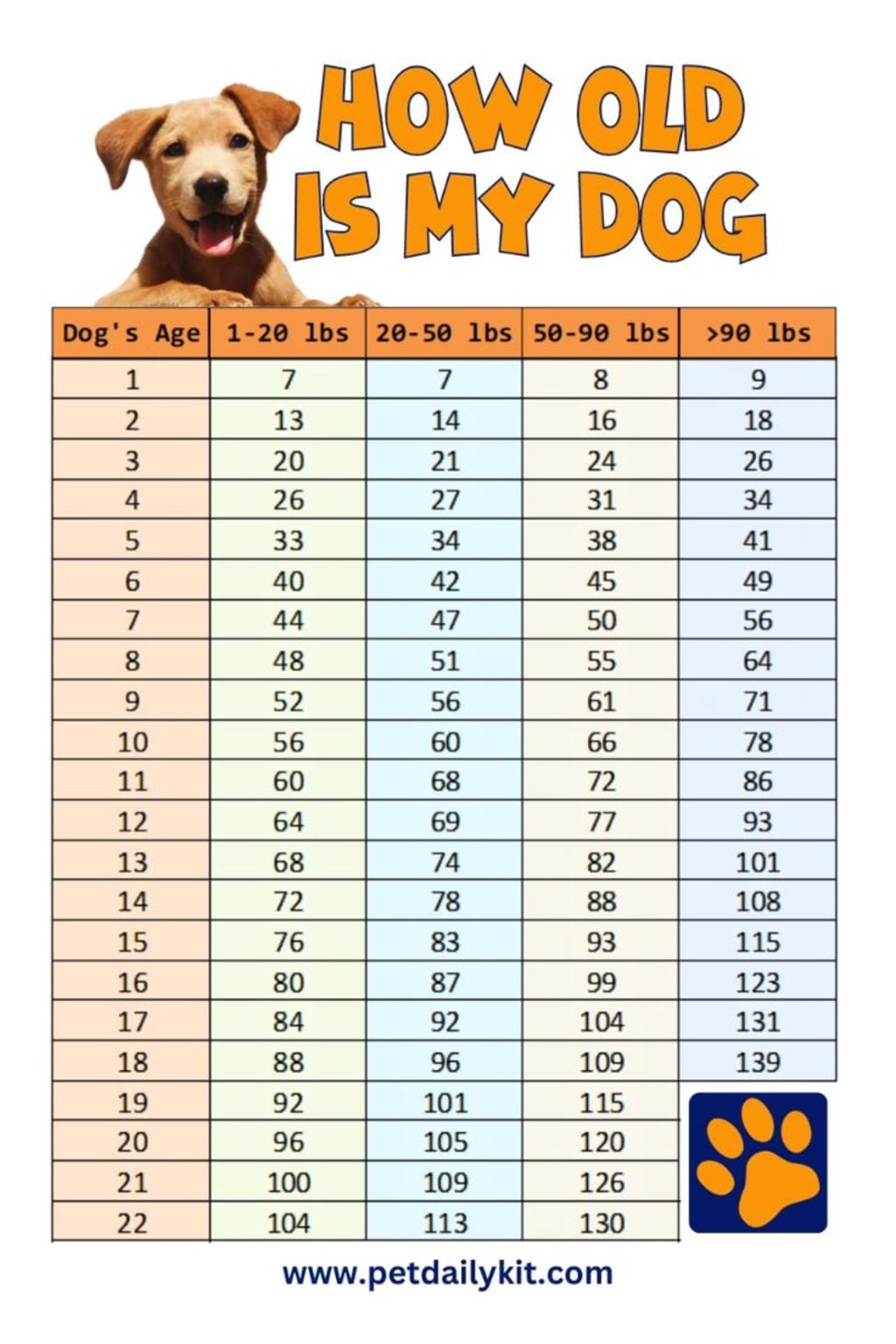Understanding Dog Aging: How Dogs Age Compared to Humans
A Comparative Analysis: Aging in Dogs vs. Humans Explained

Introduction
So, the whole concept of dog years can be quite confusing. The common belief that one dog year equals seven human years isn’t exactly accurate. This confusion arises from trying to match the life stages of dogs with those of humans. Since puppies expand rapidly, they're like teenagers once they hit one year old.
Dog Years to Human Years Calculator
The seven-year rule is straightforward, which is why it became popular. However, the truth is that small dogs and big dogs age differently. Additionally, like humans, dogs age at their own pace.
How Do We Convert Dog Years to Human Years?
Scientists have conducted numerous studies on this topic. They examine a dog’s teeth, health, and maturity stages to determine a more accurate age. It turns out that a one-year-old dog is more like a 15-year-old human, and by two years, they’re in their mid-twenties in human years!
Breed Matters
One interesting aspect is that the breed of a dog can make a difference. Smaller breeds tend to live longer than larger ones, meaning their “human age” might be unique. Veterinarians even use a chart that adjusts the dog-to-human age based on the dog’s size and breed.
Health and Lifestyle Impact
A dog’s health and lifestyle affect their aging process. A fit and healthy dog with a great diet might age more gracefully than one living a rougher life.
A New Way to Look at Dog Years
Recent studies have started using DNA to determine dog ages. They focus on something called methylation—a process that occurs as both dogs and humans age. This cutting-edge research provides a new way to understand our pets’ ages.
What’s Your Dog Telling You?
Your dog’s behavior can give you clues about their age. Older dogs might slow down or have grayer muzzles. These signs help us understand where they might be in human years.
Expert Opinions
Veterinarians and researchers have a lot to say about dog ages. They’re the ones developing new charts and methods to give us a better understanding of our dog’s age in human terms.
The Verdict on Dog Years
So, what’s the final say? There’s no perfect method to convert dog years to human years. The old “seven-year” rule is a good starting point, but it’s not one-size-fits-all. Considering your dog’s breed, size, health, and behavior can give you a better idea of their human age.
Wrap-Up: Embracing the Mystery
In the end, the exact number might not be what’s most important. It’s all about understanding your dog and giving them the best life, no matter how old they are in human years. Loving your dog at every stage ensures both of you will be happy, regardless of the numbers.
A Detailed Explanation of Converting Dog Years to Human Years
The traditional “seven-year” rule simplifies the complex aging process of dogs. However, scientific research shows that dogs do not age linearly. Smaller breeds tend to mature faster in the first few years but slow down compared to larger breeds as they age. For instance, a small dog might be considered a senior at 10 years old, while a larger breed might reach senior status by 7 years old.
Factors Influencing Dog Aging
Several factors influence how dogs age, including genetics, environment, nutrition, and medical care. Genetics is essential in determining a dog’s lifespan and how quickly they age. Environmental factors, such as exposure to toxins and the quality of care they receive, also significantly impact their aging process.
The Role of Methylation in Aging
Recent advancements in genetic research have introduced the concept of methylation in determining a dog’s age. Methylation involves changes in DNA that occur as organisms age. By studying these changes, scientists can estimate the biological age of dogs more accurately. This method provides a more precise comparison of dog years to human years, reflecting the biological aging process rather than just chronological age.
Behavioral Indicators of Aging
Observing your dog’s behavior can offer valuable insights into their aging process. Older dogs may show reduced energy, decreased interest in play, and changes in sleeping patterns. Physical changes, such as grayling fur and stiffness in movement, are also common indicators of aging. These behavioral and physical changes help pet owners gauge their dog’s age and adapt their care accordingly.
Expert Contributions to Understanding Dog Aging
Veterinarians and animal researchers continue to explore new methods for understanding how dogs age. Their contributions have led to more accurate age conversion charts and tools. These advancements help pet owners make informed decisions about their dog’s health and well-being, ensuring furry companions receive appropriate care at every life stage.
Embracing the Journey with Your Dog
While knowing your dog’s age in human years can be helpful, it’s essential to focus on providing the best care possible throughout their life. Regular veterinary check-ups, a balanced diet, and plenty of exercise are crucial for maintaining your dog’s health and happiness. Understanding their needs as they age allows you to make adjustments to their care routine, ensuring they remain comfortable and content.
Conclusion:
While the exact conversion of dog years to human years remains complex, ongoing research continues to shed light on this intriguing topic. By staying informed and attentive to your dog’s needs, you can ensure a fulfilling and joyful life for your beloved pet at every stage of their journey.
About the Creator
John Wick
I am a dedicated writer with over three years of experience in the pet niche, specializing in various pet categories. I bring knowledge & passion to my writing. Currently, I contribute articles to petdailykit.com.
Enjoyed the story? Support the Creator.
Subscribe for free to receive all their stories in your feed. You could also pledge your support or give them a one-off tip, letting them know you appreciate their work.






Comments (1)
Good article